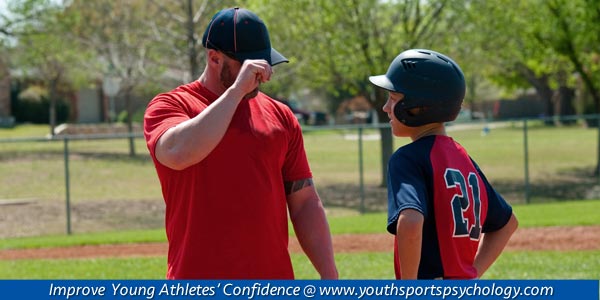3 Reasons Why Young Athletes Resist Mental Training
One sports parent recently asked:
“How do I get my son to buy into the need for mental training? He is an extremely skilled player who lacks confidence but stubbornly is not open to mental training.”
Whether young athletes are skilled or unskilled, talented or less talented, they all can benefit from mental training. Yet, a number of obstacles prevent them from embracing it.
What does this mean for you as sports parents and coaches? Read on and you’ll learn how to boost your young athlete’s confidence and success.
First, the obstacles.
Here are just some of the reasons young athletes give for resisting mental training.
Kids say:
- Coaches and teammates will think they’re weak if they embrace mental training.
- If their coaches don’t use mental training, why should they?
- Performing well is about working hard, not about what goes on in athletes’ heads.
Let’s go over these issues one-by-one.
First, all great athletes have one thing in common:
They are interested in improving themselves—including their mental game. There’s nothing weak or wimpy about taking advantage of mental training.
Says Mia Hamm:
“The most important attribute a soccer player must have is mental toughness. Before you can win, you must have the will to prepare to win.”
What’s more, athletes who worry that they’ll be seen as wimpy should embrace mental training because they think too much about how others view them!
Second obstacle:
Many coaches—especially good ones—use mental training intuitively. If they don’t, they often don’t know much about sports psychology. After all, they haven’t received any instruction in it! It’s more than likely that coaches who learn about the benefits of mental training will use it with their teams. But you as parents may need to educate them.
Third obstacle:
Yes, hard work and dedication are critical to performing well. But athletes need to understand when and why they’re doing well. That’s where mental training comes in! What’s more, kids might play well in practice, but not during competitions. Again, sports psychology can help solve this—and many other—problems.
If you want to convince your young athletes to take advantage of mental training, you need to dispel these and other myths. Tell them they’re not broken or dysfunctional if they need mental training. You also need to explain the many benefits of mental training—how, for example, it helps kids boost confidence, improve their focus and improve their performance.
Related Articles on Kids’ Mental Game:
- How to Explain Mental Training to Teens
- Helping Young Athletes Embrace Mental Training
- Why Young Athletes Avoid Mental Training
*Subscribe to The Sports Psychology Podcast on iTunes
*Subscribe to The Sports Psychology Podcast on Spotify
Improve Your Mental Game From Anywhere In The World

We’re certain that, as a parent, you want to help your child develop confidence and discipline in sports and life. And as a sports parent, you’d love for your children to reach their potential in sports. But encouraging your child to strive for greatness without pressuring them can be a challenge.
You can get expert mental coaching with us from anywhere. Meet with us via Zoom, Skype, FaceTime or phone call. With today’s video technology, we are able to connect with athletes and coaches all over the globe.
Call Us Today to Schedule Your Free 15-Minute Session.
Find Out How Your Athlete Can Benefit From One-on-One Mental Coaching!


I can agree with Dr. Cohn, I am a professional athlete and I am always trying to make my game better by building mental skills that will help me perform better. When all things are equal, the mentally tough will always prevail.